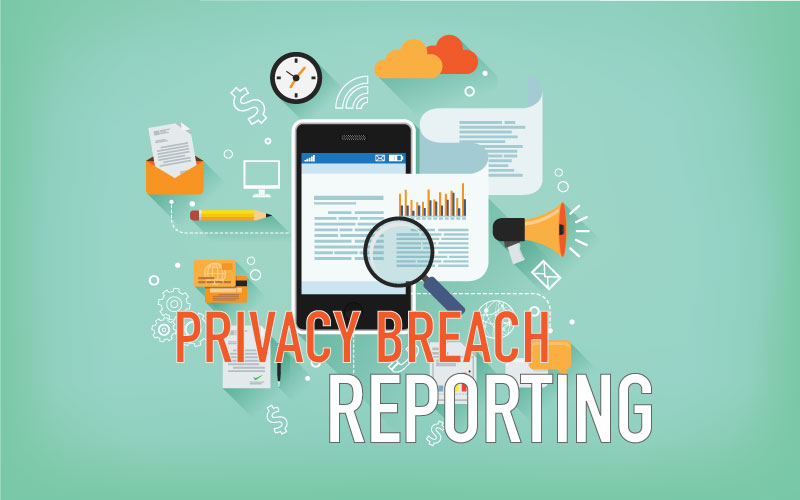
Feb 15, 2019 | News
Family Day reminds us all to focus our thoughts, energies and time to those closest to us…
the members of our own families.
Throughout our busy lives filled with learning and working, it is easy to allow ourselves to lose sight of what should always be most important – our family.
We wish all of you and the members of your families a happy, memorable, and safe Family Day!
Enjoy the opportunity to share some quality time together.
ILScorp offices are closed Monday February 18, 2019.
If you require assistance during this time, please call us and leave a detailed voicemail message or email info@ilscorp.com.
We will reopen for business on Tuesday, February 19 at 8:30am PST.

Jan 30, 2019 | News
General Insurance Agents – Ontario
New
I want to become a general insurance agent. What are the qualifications and how do I apply?
In order to obtain a license as a general insurance agent, an applicant must:
1. Have their sponsoring company initiate the online General Insurance Agent application accessible through Licensing Link and pay the required fee;
2. Be familiar with the laws of Ontario relating to the licensing of general insurance agents.
3. Be sponsored by a licensed insurer.
4. Hold himself/herself out publicly and carry on business in good faith as a general insurance agent only in the name in which the agent is licensed.
5. Not be engaged in any other business or occupation that would jeopardize the person’s integrity, independence or competence.
6. Be of good character and reputation.
7. Be a suitable person and meet all the licensing requirements.
8. Possess the appropriate educational background.
9. Provide FSCO with an Ontario mailing address that is suitable to permit service by registered mail.
What is the difference between a General Insurance Agent and a General Insurance Broker in Ontario?
Education
What are the educational requirements to become a general insurance agent?
To become licensed as a general insurance agent, the applicant must successfully pass the qualifying examination for general insurance. Examination results are valid for one year and must be forwarded to Financial Services Commission of Ontario (FSCO) when applying. FSCO does not conduct the examinations. General agents are exempt if they have a Chartered Insurance Professional (CIP) designation or successfully passed the equivalent RIBO exam.
Exam Preparation Course
I am a new agent, how do I apply for a general insurance agent license?
New agents should contact their sponsoring company to initiate an online application on their behalf. New agents are unable to submit an application without a sponsor.
Renewal
How do I renew my General insurance agent license?
Insurance agents’ licenses are renewed every two years. Agents must renew their license within 60 days prior to the expiry date on their existing license.
Applicants who have been unlicensed for two or more years will have to re-qualify as a new agent, including redoing the General Insurance examination.
All renewal applications are submitted online via Licensing Link and are initiated by the sponsoring insurer.
Payment/Fees
How much is the fee to obtain/renew my general insurance agent license?
The fee for an insurance agent license and/or to renew an insurance agent license is $150. This fee covers a two-year license period.
Sponsorship
General insurance agents require sponsorship at all times to maintain their license.
Transfer of Sponsorship
I no longer wish to remain with my sponsor. Can I move to another sponsoring company?
Sponsored agents can transfer out of their sponsorship and move to another sponsor.
The current sponsor should terminate the license online so the new sponsoring company can pick up the license and transfer to their company.
Please contact your current and new sponsor for information as the transfer application is created by the sponsor on behalf of the agent.
How much is the fee to transfer my license to a different sponsoring company?
The fee is $50 to transfer your license from one sponsoring company to another. The fee is paid online through Licensing Link. The application is created by the sponsoring company. Please contact your sponsor on how to submit an application.
Terminations
I am a sponsored general insurance agent and wish to terminate/surrender my license. How do I notify FSCO of this?
Sponsored agents shall have their sponsoring company submit an online termination on their behalf. Please contact your sponsoring company to terminate your license.
I want to terminate/surrender my license, but I do not want to lose the qualifications in case I decide to come back into the industry. Are there any provisions, time frames in which I can reinstate my license without taking the qualifying exam again?
Agents have the option of terminating their license and may have their license within two years of the date of termination/expiry (whichever comes first) without having to re-qualify.
Applicants who have been unlicensed for two or more years will have to re-qualify as a new agent, including re-writing the qualifying exam. Please contact your sponsor to terminate your license.
This information is provided for guidance only. The above information was originally provided on the FSCO website.
About FSCO.
FSCO was established under the Financial Services Commission of Ontario Act, 1997 (FSCO Act) with a legislative mandate set out in the FSCO Act. FSCO’s legislative mandate is to provide regulatory services that protect the public interest and enhance public confidence in the sectors it regulates. FSCO regulates the insurance sector; pension plans; loan and trust companies; credit unions and caisses populaires; the mortgage brokering sector; co-operative corporations in Ontario; and service providers who invoice auto insurers for statutory accident benefits claims. FSCO is accountable to the Minister of Finance. In order to support FSCO’s legislative mandate, the FSCO Act sets out a three-part structure for FSCO, which includes the Commission; the Superintendent of Financial Services and Staff; and the Financial Services Tribunal (Tribunal).

Jan 22, 2019 | News
Most of our insurance education focuses on improving product knowledge and developing our technical skills. And there’s nothing wrong with that.
However, more emphasis has been placed on discussing the ethical decisions that insurance professionals have to make daily in their dealings with other industry staff, their clients and the insurance companies they represent.
We work in a society where people pay us for the advice and products we provide to them. They expect us to be fair, honest, trustworthy, and loyal and all the other things they value in their insurance professional. If we breach any of these ethical values, they may well perceive us as being unethical in our dealings with them.
When you hear the word “ethics” what, if anything, comes to mind?
If you said that ethics involves doing the right thing – making the right decision – when in a given situation that offers other possibilities, you are on the right track.
So, it makes sense that if you choose to do the right thing, you are acting ethically and, conversely, if you choose to do the wrong thing, chances are pretty good that you are acting unethically.
There are many definitions of “ethics”, including this one: “Ethics is about fairness, about deciding what is right or wrong, about defining practices and rules that guide responsible conduct between individuals and groups”.
Fairness is a basic ethical value – if you treat people fairly, you reduce the odds of your behaving unethically.
Over the years, philosophers and other scholars have made valiant attempts to provide a generally acceptable definition of ethics. Ethics, like professionalism, is very difficult to define in a fundamental way that will win wide acceptance, but we know it when we see it. Several values are widely recognized as the requisite traits of an ethical person, including:
– honesty and integrity;
– respect and caring for others;
– promise keeping, trustworthiness and fairness; and
– personal accountability.
These ethical values can clearly influence the kind of service insurance organizations provide. A motivated work force that is guided by these ethical values will do much to earn the trust of the insurance buying public. Trust is earned over time through dealing honestly and consistently displaying an attitude that reflects both self-respect and respect for others. If service improves, if ethical values rise, the image of insurance will necessarily improve because image reflects reality.
New Course Making the Right Ethical Decisions
Ethics is all about doing the right thing in a particular situation. As insurance professionals, our clients, insurers and the public (and a lot of other people and organizations) would expect us to do nothing less. In this course, we will look at the following topics as they relate to “Ethics and the Insurance Professional”, specifically:
- Defining “Ethics”
- Establishing Ethical Standards – Sources of Influence
- Basic Ethical Values and What They Really Mean
- The Insurance Broker’s Dilemma
- What a Formal Ethics Program Will Do For Your Brokerage.
Credit Hours: 1
Credit Type: Conformité – Compliance
Credit #: CSF18-12-44571
Accrediting Provinces: QUEBEC
COURSE INFO
This course is included as part of your ILScorp CSF PDU Subscription.
Complete your PDU requirements by November 30, 2019. CSF accredited online courses for Quebec Life Insurance Agents and Financial Planners!
MORE INFO
Reference period from December 1, 2017 to November 30, 2019
With the CSF Accredited Online Courses Subscription you will:
- have 6 months access to over 52 accredited CSF insurance training courses in both text and streaming video formats
- access over 120 PDUs in the categories compliance, insurance of persons, general subjects and group insurance of persons
- save money compared to purchasing individual courses
- have a digital record of your completed course work, which we keep on file for up to seven years
- save time by completing your PDU requirements entirely online, no paperwork or commute

Nov 20, 2018 | News
On November 1, 2018, new provisions in the Personal Information Protection and Electronic Documents Act (PIPEDA) related to breach of security safeguards came into force, along with breach of security safeguards regulations.
A privacy breach is the loss of, unauthorized access to, or disclosure of, personal information. Breaches can happen when personal information is stolen, lost or mistakenly shared.
Businesses subject to PIPEDA have certain obligations following a breach. These may include reporting to the Office of the Privacy Commissioner of Canada, notifying affected individuals and keeping certain records of privacy breaches.
To be compliant, it’s critical that organizations understand just what the requirements are, when the obligations, record-keeping, reporting and notification are triggered, and ensure they implement policies and procedures aligned with the law.
Most data breaches, whether accidental or malevolent, are in fact caused by an organization’s own employees. Implementing a plan to avoid and handle data breaches by its own employees is an important aspect of an its data breach risk mitigation plan generally and the Digital Privacy Act’s new data beach response requirements means more employee breaches are likely.
PIPEDA Explained Legislated Privacy Standards for Every Business Online Course Series
This PIPEDA course training series has been developed for brokerage owners, managers and supervisors specifically. This series focuses on the specific internal guidelines and procedures you can implement in your brokerage to safeguard the privacy rights defined in PIPEDA and other relevant laws. Courses include sample privacy policy worksheets and have been updated to include the new privacy breach regulations.
This 3 Part PIPEDA Series is available as part of the ILScorp General CE Subscription.
PIPEDA PART 1:
Lesson A: Understanding Privacy Laws
Introduction, Definitions and General Requirements
Lesson B: The Principles Begin with Accountability
The 10 Principles of the Privacy Code
Principle 1- Accountability
Lesson C: Identifying Purposes and Consent
Principle 2 – Identifying Purposes
Principle 3 – Consent
PIPEDA PART 2
Lesson A: Principles 4, 5 and 6
Principle 4 – Limiting Collection
Principle 5 – Limiting Use, Disclosure and Retention
Principle 6 – Accuracy
Lesson B: Principles 7, 8, 9 and 10
Principle 7 – Safeguards and Reporting Requirements
Principle 8 – Openness
Principle 9 – Individual Access
Principle 10 – Challenging Compliance
PIPEDA PART 3
Lesson A: The Privacy Commissioner and Complaints
Lesson B: Applications and Audits

Nov 13, 2018 | News
Continuing Education Requirements for a Life and/or Accident and Sickness Licensee in Saskatchewan.
(1) Licensees are required to earn a minimum of fifteen credit hours of continuing education in each annual reporting period.
(2) Only credit hours earned in a reporting period are eligible unless written consent is provided by Saskatchewan Insurance Council.
(3) Failure to comply with the continuing education requirements shall result in a suspension of licence until the licensee has earned the required continuing education credit hours.
Definition of Continuing Education
(1) Only courses that provide technical education are considered to qualify as continuing education including courses that directly relate to:
(a) Life or accident and sickness insurance products;
(b) Financial planning provided that:
- a minimum of ten of the fifteen hours required per year is related to life or accident and sickness insurance; and
- a maximum of five of the fifteen hours required per year is related to non-insurance sectors such as securities and mutual funds;
(c) Compliance with insurance legislation and requirements such as Council’s Code of Conduct, Act and bylaws made pursuant to that Act, privacy legislation and anti-money laundering and anti-terrorist financing legislation;
(d) Ethics;
(e) Errors and Omissions Insurance; and
Life/A&S Accredited CE Courses
Courses leading to an approved designation such as Chartered Life Underwriter (CLU), Certified Financial Planner (CFP), Registered Financial Planner (RFP), Certified Health Insurance Specialist (CHS), Certified Employee Benefit Specialist (CEBS), Personal Financial Planner (PFP), Certified International Wealth Manager (CIWM), Elder Planning Counselor (EPC) and such other designations as are approved by Council.
(2) To receive credit for the purposes of continuing education, the licensee must successfully complete the course.
(3) Courses, programs or meetings related to sales promotion, promotion, motivation or computer training do not qualify for credit hours.
Structure
(1) The education must take place in a structure dedicated to learning which can include,but is not limited to, classroom, seminar, on-line and self-study.
Time
(1) One hour of instruction is equal to one hour of continuing education credit.
(2) A maximum of 8 credit hours will be allowed in one calendar day.
Reporting Requirement for Licensees
(1) Licensees must file an annual report stating the continuing education courses they have attended.
(2) Licensees must retain certificates issued by course provider(s) for inspection by councilin the event of an audit of the licensee’s records by council.
Provincial Licensing Regulations
Oct 31, 2018 | News
At ILScorp we are committed to providing you with the best customer experience – and that begins with keeping you informed.
Canada Post postal workers across the country continue to carry out rotating strikes.
These labour disruptions may impact payments sent to ILScorp via mail.
Below is some important information that will help you stay informed of your group member charges and avoid late payment fees:
You can pay your ILS Group Member invoice, and all other invoices via credit card, by calling the ILScorp offices @ 1.800.404.2211 and speaking directly with one of our friendly customer service representatives.
You can also pay your ILS Group Member invoice, and all other invoices via cheque sent through ICS Courier or an alternate courier of your choice.
It’s important to note that you remain responsible for paying your bills on time even during the labour disruption. Thank you for using this information to avoid possible late payment charges.
In turn, ILScorp has been, and will continue to ship all ILS Textbooks through ICS Courier, to ensure our students receive their study material.
Thank you
ILScorp








